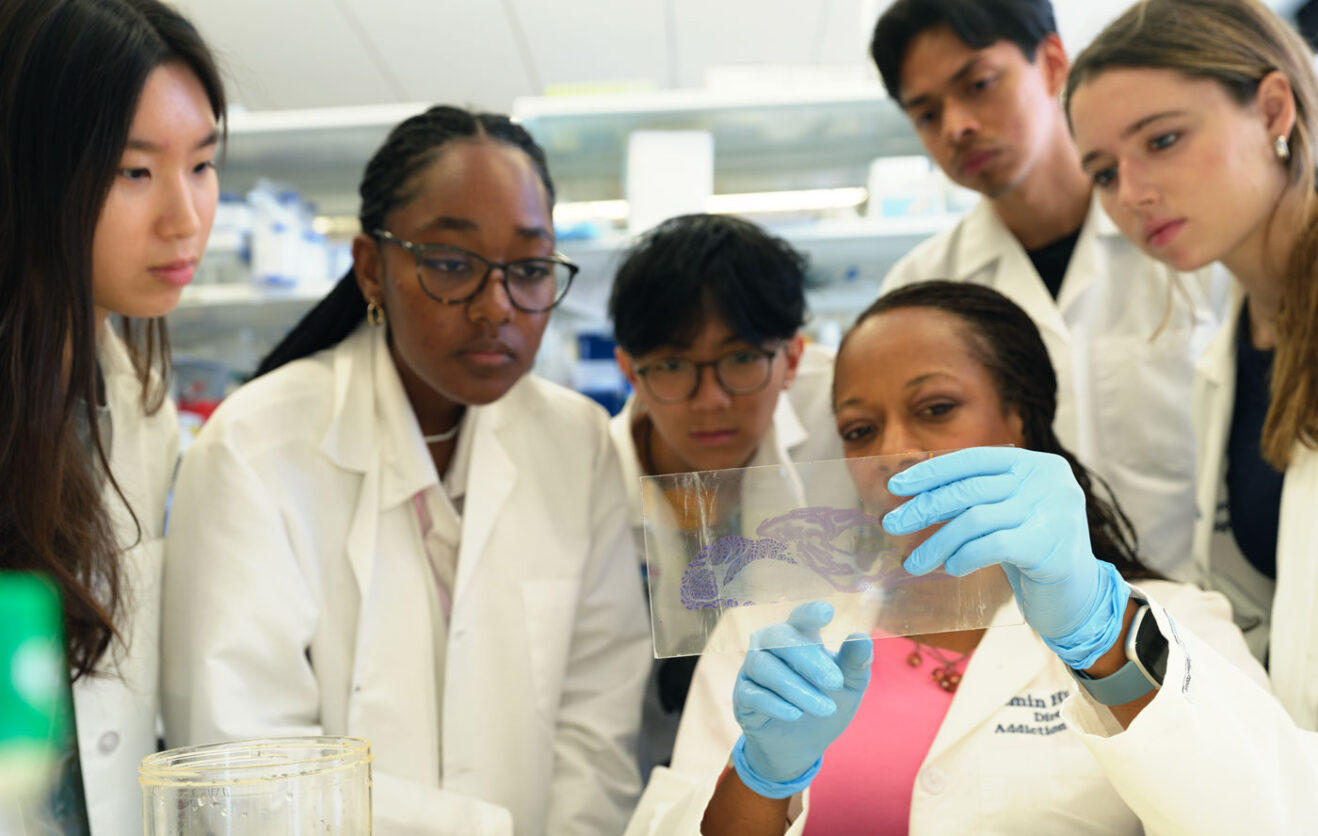In a world where the legalization of cannabis is gradually unfolding across states, the spotlight has turned to neuroscientist Yasmin Hurd, who is sounding the alarm about the potential dangers of the drug, particularly concerning its effects on the developing brain. As states relax their cannabis laws, Hurd’s expertise is illuminating the intricate ways in which the drug interacts with the brain, especially in adolescents and children. This article delves into Hurd’s insights, highlighting the risks she identifies and the potential consequences for society.
Unpacking Cannabis and Its Neurological Impact
In a pivotal moment, Hurd, a distinguished neuroscientist at the Icahn School of Medicine at Mount Sinai, addressed a concerned audience via Zoom. The gathering consisted of educators and specialists working with children, particularly in the South Bronx community. The pressing issue at hand was the increasing prevalence of children accessing cannabis, following the opening of New York’s first recreational cannabis dispensary just five months prior.
Hurd visually depicted the human brain’s intricate receptors, displaying their distribution and significance. The receptors, central to brain function, are where tetrahydrocannabinol (THC), cannabis’s psychoactive component, binds. Hurd’s presentation illuminated how these receptors span various brain regions, influencing cognition, motor coordination, memory, and emotional regulation.
Elucidating her research findings, Hurd emphasized that cannabis use, irrespective of form, disrupts the brain’s ability to regulate neuronal activity. These effects, she suggests, can have profound implications for developing brains. Hurd’s studies are revealing a growing body of evidence indicating that cannabis use among children and adolescents can elevate the risk of psychiatric issues such as addiction, schizophrenia, and mental health challenges that extend into adulthood. Additionally, her work explores how prenatal exposure to cannabis may initiate mental health disorders in childhood and beyond.
Linking Species and Disciplines: A Milestone in Research
Hurd’s scientific contributions have reverberated across species and disciplines. Her unique ability to bridge results obtained from animal models to human studies has earned her recognition as a pioneering force in the field. Susan Tapert, an addiction researcher at the University of California, San Diego, hails Hurd’s capacity to unify seemingly disparate studies. This ability has led Hurd to uncover the complexities of cannabis’s impact on the developing brain, delineating biological mechanisms that could underlie long-term effects.
Miriam Melis, a neuroscientist at the University of Cagliari, acknowledges Hurd’s trailblazing endeavors in the realm of cannabis developmental effects. Beyond her scientific achievements, Hurd’s journey as a Black woman excelling in a predominantly male domain serves as an inspiration for diversity in science.
A Crucial Intersection: Cannabis Legalization and Neurological Concerns
As the wave of cannabis legalization sweeps across the United States, Hurd’s findings take on heightened relevance. Currently, 23 states and Washington, D.C., have legalized cannabis for adult recreational use. While legalization is hailed as a progressive step, Hurd’s research raises critical concerns. Eric Nestler, an addiction researcher and director of the Friedman Brain Institute, attests that her work raises significant cautionary flags about the consequences of legalization.
Legalization has made cannabis more accessible to a broader demographic, including pregnant individuals and minors. The potency of available products has surged, often with lax regulation. Hurd’s firsthand experiences at Mount Sinai’s Addiction Institute have highlighted the disconnect between accessibility and awareness. The increasing prevalence of shops selling potent cannabis products compounds the issue.
Navigating Complexities: Hurd’s Perspective on Cannabis
Hurd’s stance is nuanced, advocating against the criminalization of cannabis while highlighting the potential drawbacks of its widespread availability. While she acknowledges the imperative of informed choices, she believes that the permissiveness associated with legalization carries substantial risks. Hurd’s primary concern is the cavalier attitude towards a substance that could profoundly impact young lives.
Her science endeavors to foster awareness about cannabis’s potential harm. Hurd’s work underscores the need for a comprehensive approach that combines responsible regulation, education, and research. She envisions a society where cannabis use is informed by knowledge, minimizing potential harm to vulnerable populations.
Tracing Hurd’s Journey: A Force for Change
Yasmin Hurd’s journey in science is marked by determination, intellectual curiosity, and the quest for relevance. From her childhood experiments to her pioneering work on the effects of cannabis on the brain, Hurd’s trajectory has been driven by a relentless pursuit of understanding. Her resilience as a Black woman in a field dominated by white men is an inspiration, shattering barriers and serving as a beacon of diversity in science.
Deciphering Cannabis’s Impact on the Developing Brain
Yasmin Hurd’s research has illuminated the intricate relationship between cannabis use and the developing brain. Adolescence is a particularly vulnerable period, with the endocannabinoid system playing a pivotal role in brain maturation. Hurd’s work has revealed that exposure to THC during adolescence can reshape brain structure and function, potentially contributing to psychiatric disorders such as schizophrenia. The potency of cannabis products and the context of use further complicate the picture, raising concerns about societal and individual impacts.
Prenatal Exposure and Beyond: Unveiling the Long-Term Consequences
Hurd’s investigations extend to prenatal exposure to cannabis. Through a collaboration with Diana Dow-Edwards, she explored the effects of maternal cannabis use on the fetal brain. Their findings suggest that in utero cannabis exposure can alter dopamine systems, emotional regulation, and neuronal wiring, potentially influencing emotional and addictive behaviors in the offspring. Hurd’s partnership with Yoko Nomura also revealed the potential interplay between prenatal cannabis exposure and environmental stressors, magnifying the risks for psychological disorders.
Cannabis Legalization: Balancing Progress and Risks
Hurd’s advocacy for responsible cannabis regulation is informed by her concern for vulnerable populations. She acknowledges the limitations of criminalization and supports regulations that prioritize education, awareness, and harm reduction. Hurd’s commitment extends beyond her scientific pursuits; she fights for addiction treatment centers and endeavors to restore lives affected by substance use disorders. As cannabis legalization continues, Hurd’s voice serves as a reminder that informed decisions and responsible measures are vital to navigate this evolving landscape.















